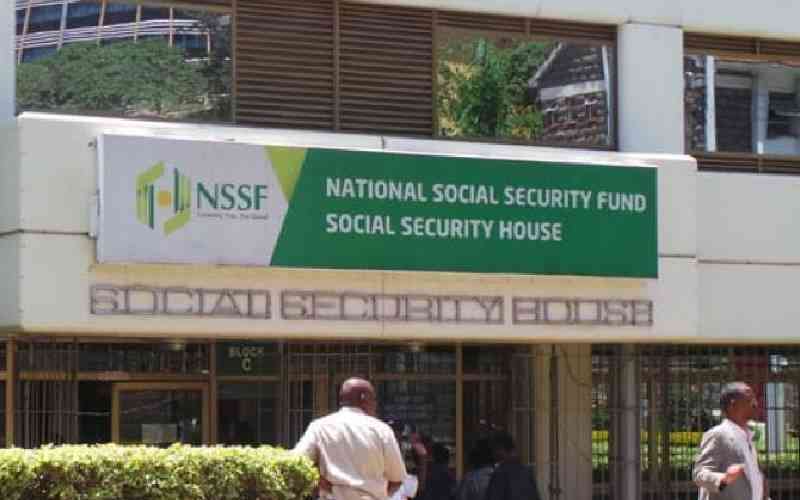
The National Social Security Fund (NSSF) has recorded a decrease in its return on investment for last year.
NSSF Chief Executive Officer David Koross said the fund suffered a decline of Sh29.5 billion due to the downturn in the equities market. Many of the companies in which NSSF had invested experienced declining share prices.
"Most of the companies we had invested in such as Safaricom were down and a share was going for about Sh14," said Koross.
The CEO noted that government treasury bills remained the principal investment for NSSF during the period. However, compared to the previous financial equities experienced a downturn during the 2022/2023 financial year, while government bonds were affected by rising interest rates.
However, the Auditor-General report raised concerns over NSSF's financial statements covering the year ending June 30, last year.
The report pointed out discrepancies in opening balances for certain items in the financial statements, such as staff loans and other income. The unexplained variances in these balances raised questions about the accuracy of the financial data.
The report also highlighted unsupported salaries and allowances amounting to Sh27.6 million.
NSSF's financial statements revealed that the general administrative cost amounted to Sh2.63 billion, which included trustee emoluments of Sh29.2 million. It was discovered upon review that the Board of Trustees received a sitting allowance of Sh 50,000 along with a monthly director retainer fee of the same amount, as recommended in 2011 by the then Minister for Labour.
However, a critical aspect was missing - there was no official approval from vital regulatory bodies including the State Corporation Advisory Committee, the Public Service Commission, the National Treasury, and the Salaries and Remuneration Commission.
"In the circumstances, the regularity of the Board expenses of Sh29,241,145 could not be confirmed," stated the Auditor General Nancy Gathungu.
Despite these issues, Koross highlighted some positive aspects of the fund's performance, pointing out that they were able to collect Sh25 billion, surpassing the Sh19 billion target. Out of this amount, Sh6.7 billion had already been paid out to members.
Koross welcomed the proposal by lawmakers to reduce the retirement age from 60 to 55, saying that it wouldn't significantly affect NSSF's ability to pay benefits promptly.
He explained that the fund's payment structure is mostly one-off, allowing it to manage benefits as they become due.
Stay informed. Subscribe to our newsletter
Looking ahead, Koross outlined short-term measures that NSSF plans to implement to improve operations and financial performance. These measures include paying benefit claims within 24 hours and reducing operational costs to 1 per cent. The fund also aims to enroll an additional one million members.